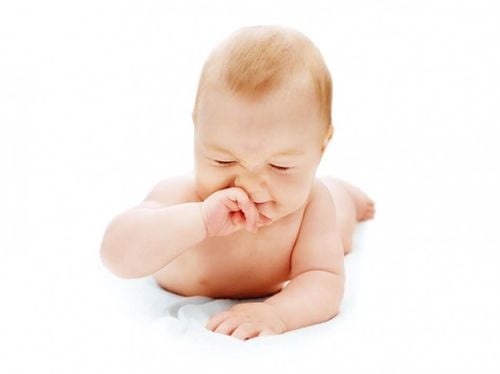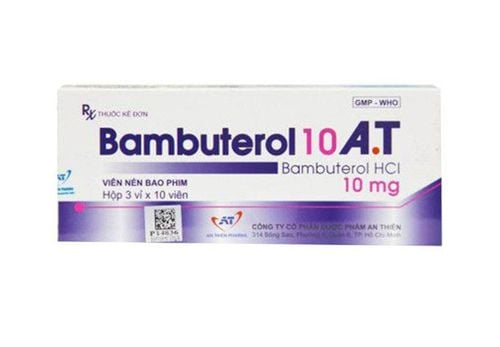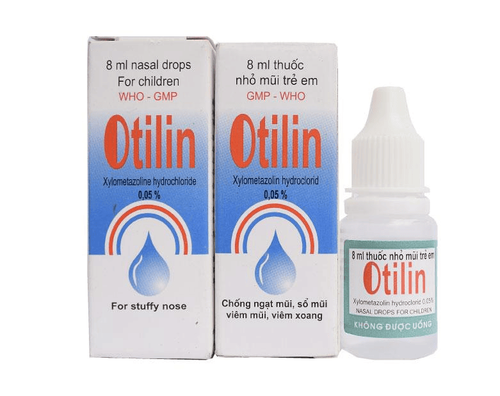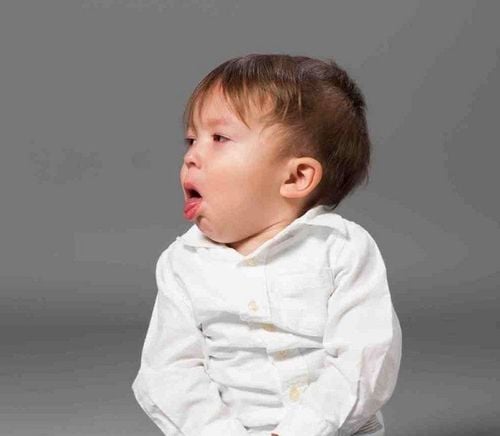This is an automatically translated article.
This article is expertly consulted by Master, Doctor Ngo Thi Oanh - Pediatrician - Pediatrics - Neonatology - Vinmec Ha Long International General Hospital.Children with small nose size mainly breathe through the nose, so when facing adverse conditions, it is easy to get stuffy nose. Children with stuffy nose and wheezing need to be closely monitored, especially when they have difficulty breathing because it can be a warning sign of a serious medical condition.
1. Recognizing the condition of infants with stuffy nose, wheezing
Children with stuffy nose can be easily detected with specific symptoms such as: Runny nose, fast breathing, fussiness...Wheezing is the abnormal breathing sound of children when they have lower respiratory tract infections. When the bronchi are infected with mucus, they will be easily edematous, constricted, blocked, obstructing the circulation of air, making breathing difficult, creating a wheezing sound.
Wheezing can be heard most clearly when the child exhales, listening to the bass. Parents can put their ears and close to the child's mouth, listening carefully to the baby's breathing. It is best to check for breathing sounds when the child is lying still. Many cases of wheezing children are difficult to detect and must be checked with a doctor's stethoscope.
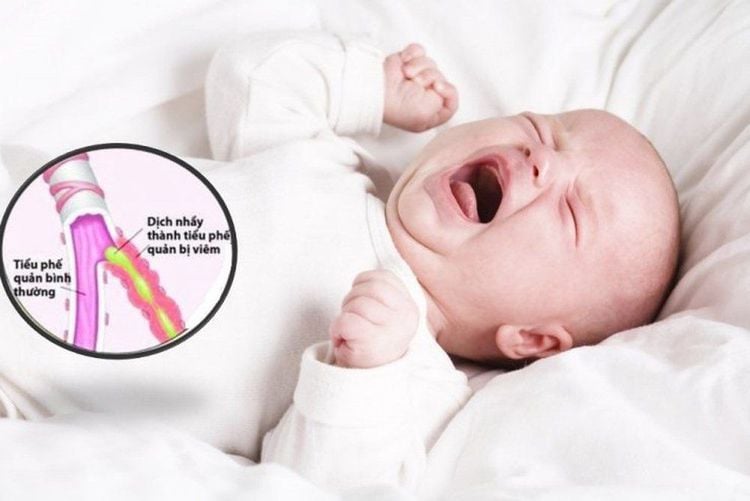
Bệnh viêm tiểu phế quản là nguyên nhân khiến trẻ sơ sinh bị thở khò khè
2. Causes of newborn baby stuffy nose, wheezing
2.1. Asthma Asthma is one of the most common causes of wheezing in children. Asthma is a chronic inflammatory disease of the airways. There are family factors, the respiratory system is sensitive to many irritants such as: dust, smoke, pollen... or the patient may have the disease after having an acute respiratory infection. At that time, the child will have episodes of wheezing and difficulty breathing.2.2. Bronchiolitis Bronchiolitis is an acute infection of the small bronchi or bronchioles. The bronchioles do not have cartilage, and are very small, so when infected, they will easily swell, narrow the airways, obstruct the circulation of air, making it difficult for children to breathe, wheeze, even hypoxia and respiratory failure.
2.3. Pneumonia Children have stuffy nose, wheezing due to pneumonia. This is a serious respiratory infection, damage to the lung tissue. The alveoli have a lot of mucus and pus, causing the child to wheeze and have respiratory failure.
In addition, the child may also have wheezing due to a foreign body in the airway or the bronchi being compressed....
3. What to do when an infant wheezes?
Recommended video: How to properly wash your baby's nose
When children wheeze, parents need to monitor closely. If the child wheezes for a long time, then the child should be taken to the hospital for examination and specialized tests to accurately diagnose the condition.
Do not arbitrarily give children drugs without a doctor's prescription, including anti-inflammatory drugs, expectorants, antibiotics...
Clean the nose, drop the child's nose with physiological saline and have You can suck the baby's nose to remove mucus, help the nose clear, and the child can breathe easier.
Breastfeed your baby more to provide enough water and nutrients for the body
In case the child has dangerous symptoms such as: chest retraction breathing, lethargy, cyanosis, intellectual disturbance .. Parents need to take the child to the hospital immediately. Vinmec International General Hospital, with a team of leading pediatric doctors and modern equipment, is an address that many parents trust in the treatment of children's diseases, such as cough with phlegm, cough with wheezing. wheezing, high fever, pneumonia....
In addition, parents should also add some supporting foods containing lysine, essential micro-minerals and vitamins such as zinc, chromium, selenium, B vitamins, ... to help fully meet their needs. requirements for nutrients and at the same time support the immune system, enhance resistance, reduce the risk of upper respiratory tract infections, bronchitis, flu.
Lysine is very necessary for the development of children, Lysine promotes the production of digestive enzymes to stimulate children to eat better and digest easily and effectively, increase food metabolism, maximize absorption of nutrients. Nutrition from food.Strengthening lysine for babies helps the body create antibodies, develop resistance to help reduce cough, thin phlegm in children.
Parents can learn more:
Why do you need to supplement Lysine for your baby?
Please regularly visit Vinmec.com website and update useful information to take care of your baby and family.





